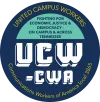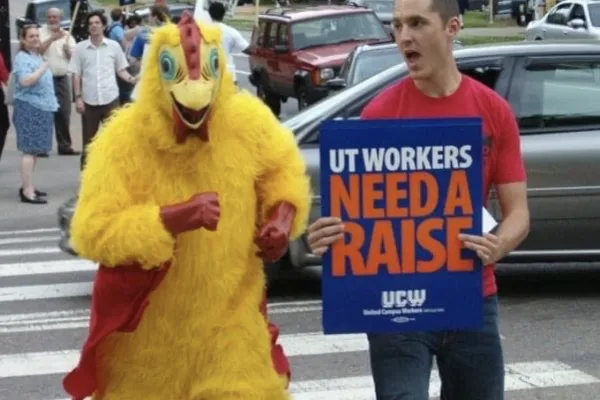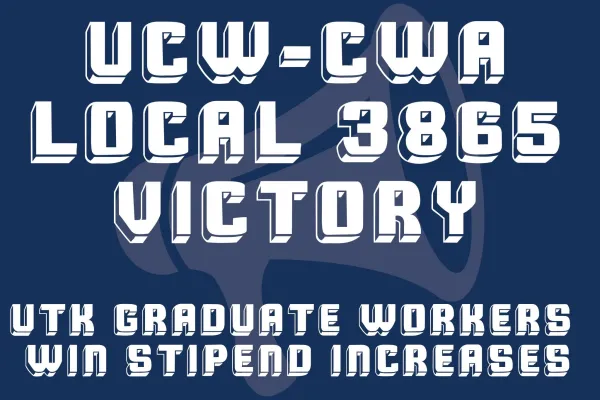Letter to the editor concerning Gov. Haslam's post-secondary education review
 The third of Governor Bill Haslam’s roundtable meetings with “employers and educators” was held on July 31 in a west Knoxville boardroom at Scripps Network, a facility whose expansion the former Knoxville Mayor supported in 2007. The seats at the table were marked with nametags, for invited and expected attendees. Roughly a third of the seats were for area legislators (three Senators, four Representatives); administration from UT Knoxville, Pellissippi State Community College, Tennessee Technology Center-Oneida/Huntsville, and Knox Co. Schools made up the “educators” part of the table; and companies ranging from a local manufacturing plant to Volkswagen, Scripps, and Aqua Chem were there representing area “employers.” The expressed aim of these roundtables is to gather input on how to meet what are described as the three challenges of post-secondary education: 1) addressing costs; 2) producing more graduates; and 3) maintaining quality, with the overarching question being how to make it more “market relevant,” according to the Governor.
The third of Governor Bill Haslam’s roundtable meetings with “employers and educators” was held on July 31 in a west Knoxville boardroom at Scripps Network, a facility whose expansion the former Knoxville Mayor supported in 2007. The seats at the table were marked with nametags, for invited and expected attendees. Roughly a third of the seats were for area legislators (three Senators, four Representatives); administration from UT Knoxville, Pellissippi State Community College, Tennessee Technology Center-Oneida/Huntsville, and Knox Co. Schools made up the “educators” part of the table; and companies ranging from a local manufacturing plant to Volkswagen, Scripps, and Aqua Chem were there representing area “employers.” The expressed aim of these roundtables is to gather input on how to meet what are described as the three challenges of post-secondary education: 1) addressing costs; 2) producing more graduates; and 3) maintaining quality, with the overarching question being how to make it more “market relevant,” according to the Governor.
Two questions not being focused on nearly enough are, 1) Aren’t Tennessee’s campuses themselves employers?, and 2) How do we maintain quality with regard to the people we employ at our institutions of higher learning? At a minimum, paying people enough to provide for their families to live a decent life without reliance on governmental assistance or private charity, and that is on a par with wages paid at peer institutions and in private employment, is one way to ensure this.
Higher education is not only essential to our state’s economy, it is an economic engine. Middle Tennessee State University is the second largest employer in the city of Murfreesboro, the third largest in Rutherford County, and accounts for more than 10,000 jobs in the Nashville metro area (more than 13,000 if you include student and graduate student workers). And although MTSU receives public money to operate, MTSU-related activities create nearly as much tax revenue as the public support it receives . In east Tennessee, from 2006-2011, for every $1.00 of local revenues coming to Pellissippi State Community College, $3.70 of local business and $3.94 - $4.21 individual income were generated, for a total return on investment of $7-$8 on the local dollar.
 Today, the fourth of Governor Bill Haslam’s roundtable meetings with “employers and educators” took place in Memphis at the University of Tennessee Health Sciences Center. Cedar Lorca Nordbye, Associate Professor of Art at the University of Memphis, changed the dynamic of the meeting when he raised his hand and was called on by the Governor. Afterwards, he commented, “I was happy to be there, the conversation is important, and I’m happy to see government paying attention. But I went into the meeting with some trepidation that with all the business leaders, it could be another step in the direction of the corporatization of American education. As someone who comes from the Liberal Arts and who teaches the Humanities, that concerns me greatly. It concerns me also because there is more at stake in higher education than jobs alone; there is the quality of jobs and the quality of life. I hope the university can strive to not just become a more efficient machine, but also a model for ethical citizenry.”
Today, the fourth of Governor Bill Haslam’s roundtable meetings with “employers and educators” took place in Memphis at the University of Tennessee Health Sciences Center. Cedar Lorca Nordbye, Associate Professor of Art at the University of Memphis, changed the dynamic of the meeting when he raised his hand and was called on by the Governor. Afterwards, he commented, “I was happy to be there, the conversation is important, and I’m happy to see government paying attention. But I went into the meeting with some trepidation that with all the business leaders, it could be another step in the direction of the corporatization of American education. As someone who comes from the Liberal Arts and who teaches the Humanities, that concerns me greatly. It concerns me also because there is more at stake in higher education than jobs alone; there is the quality of jobs and the quality of life. I hope the university can strive to not just become a more efficient machine, but also a model for ethical citizenry.”
The people who make all this possible – the campus staff, faculty, instructional staff, students, and part-time workers – have been otherwise absent from the table at these meetings. We should be part of the equation for improving campus operations, for priority-setting, and for implementing what gets decided. Will we have any cards at the table when remaining “roundtables” take place? Will we even get advance notice?
Sincerely,
Tom Anderson
President
United Campus Workers, Tennessee’s public higher education union
Graduate Workers Win Fully Subsidized Health Insurance at University of Memphis



